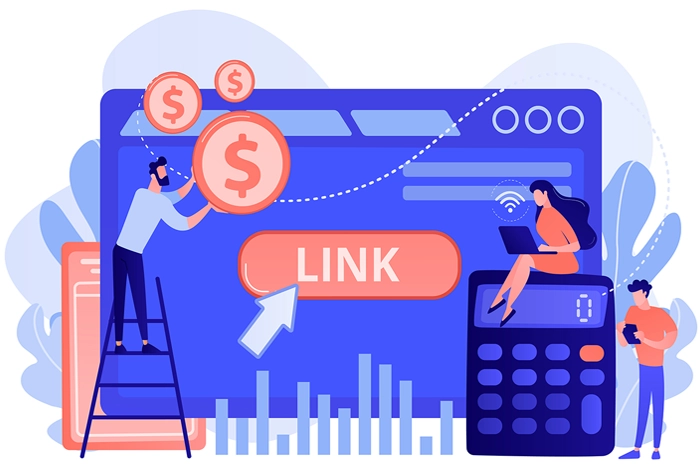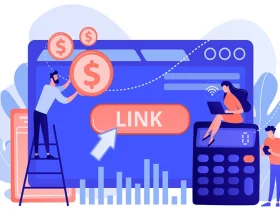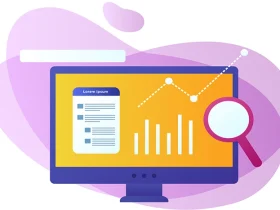
How to Maximize Your Marketing ROI
In the fast-paced world of digital marketing, Pay-Per-Click (PPC) advertising remains one of the most effective ways to drive targeted traffic and increase conversions. Whether you’re running campaigns on Google Ads, Microsoft Advertising, or social media platforms, PPC offers immediate visibility and measurable results. However, achieving a high return on investment (ROI) requires strategic planning, optimization, and continuous monitoring.
Why PPC Matters for Your Business
PPC advertising provides businesses with a direct way to reach potential customers who are actively searching for their products or services. Unlike organic marketing efforts, which can take months to yield results, PPC delivers instant exposure and allows advertisers to control their budget, targeting, and messaging.
Some key benefits of PPC include:
- Instant Visibility: Get your brand in front of potential customers immediately.
- Targeted Advertising: Reach specific demographics, interests, and behaviors.
- Measurable Performance: Track clicks, conversions, and ROI with detailed analytics.
- Budget Control: Set spending limits and adjust bids based on performance.
- Scalability: Increase or decrease ad spend based on business goals.
Crafting a High-Performing PPC Campaign
To get the most out of your PPC campaigns, follow these essential strategies:
Define Clear Goals
Before launching a campaign, establish clear objectives. Are you looking to increase website traffic, generate leads, or drive ecommerce sales? Defining your goals will shape your strategy and help measure success effectively.
Conduct Thorough Keyword Research
Keywords are the foundation of any successful PPC campaign. Use tools like Google Keyword Planner to identify high-intent keywords relevant to your business. Focus on:
- High-converting keywords with strong purchase intent.
- Long-tail keywords for a more targeted approach.
- Negative keywords to prevent wasted ad spend on irrelevant searches.
- Write Compelling Ad Copy
Your ad copy should be clear, persuasive, and action-driven. Incorporate:
- Attention-grabbing headlines
- A strong call-to-action (CTA)
- Relevant keywords
- Unique selling points (USPs)
Testing different variations of ad copy (A/B testing) can help determine which messaging resonates most with your audience.
Optimize Landing Pages
A well-designed PPC landing page is crucial for maximizing conversions. Ensure that your landing pages:
- Align with your ad messaging.
- Load quickly and are mobile-friendly.
- Have a clear and compelling CTA.
- Include trust signals such as testimonials and security badges.
Implement Conversion Tracking
Use tracking tools like Google Analytics, Facebook Pixel, or conversion tracking in Google Ads to monitor campaign performance. Track important metrics such as:
- Click-through rate (CTR)
- Cost-per-click (CPC)
- Conversion rate
- Return on ad spend (ROAS)
Continuously Optimize Your Campaigns
Regularly analyze performance data and make adjustments based on insights. Key optimization strategies include:
- Adjusting bids based on performance trends.
- Refining keyword targeting.
- Testing different ad creatives.
- Leveraging remarketing to re-engage visitors who didn’t convert initially.
Exploring Advanced PPC Strategies
To further enhance your PPC success, consider implementing advanced tactics such as:
Smart Bidding Strategies
Google Ads and Microsoft Ads offer automated bidding strategies like:
- Target CPA (Cost-Per-Acquisition): Automatically adjusts bids to meet your cost-per-acquisition goal.
- Target ROAS (Return on Ad Spend): Optimizes bids to maximize revenue based on your target return.
- Maximize Conversions: Uses machine learning to get the highest possible conversions within your budget.
Leverage Audience Targeting
Beyond keyword targeting, PPC platforms allow for audience segmentation based on:
- Demographics (age, gender, income, etc.)
- Interest-based targeting
- Behavioral data and website interactions
Using custom audiences and lookalike audiences can help you reach users who are most likely to convert.
Utilize Ad Extensions
Ad extensions enhance visibility and engagement by providing additional information, such as:
- Site link extensions (links to specific pages)
- Call extensions (direct phone number access)
- Location extensions (displaying business addresses)
Harness the Power of Remarketing
Remarketing allows you to target users who have previously visited your website but didn’t convert. Through Google Display Network, Facebook, or other platforms, you can re-engage them with tailored ads and special offers.
Conclusion: A Well-Optimized PPC Campaign Pays Off
PPC ads are a powerful tool that, when executed correctly, can drive high-quality traffic, increase conversions, and boost revenue. By setting clear goals, refining targeting strategies, optimizing landing pages, and leveraging data-driven insights, you can maximize your marketing ROI.
If you’re looking to take your PPC strategy to the next level, consider partnering with an experienced digital marketing agency. With expert guidance and ongoing optimization, you can achieve sustainable growth and stay ahead of the competition.
Are you ready to supercharge your PPC campaigns? Let’s get started!




